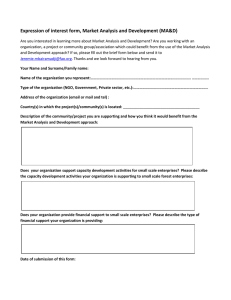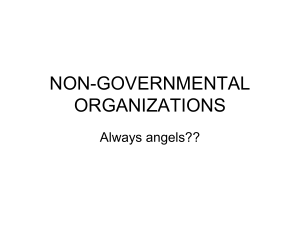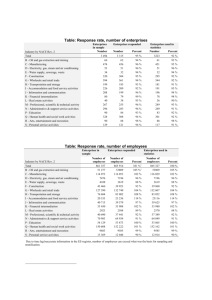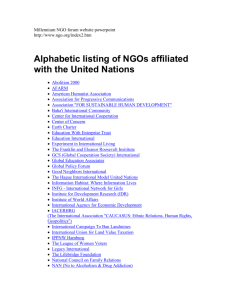sustainable_society_agnes_markus
advertisement
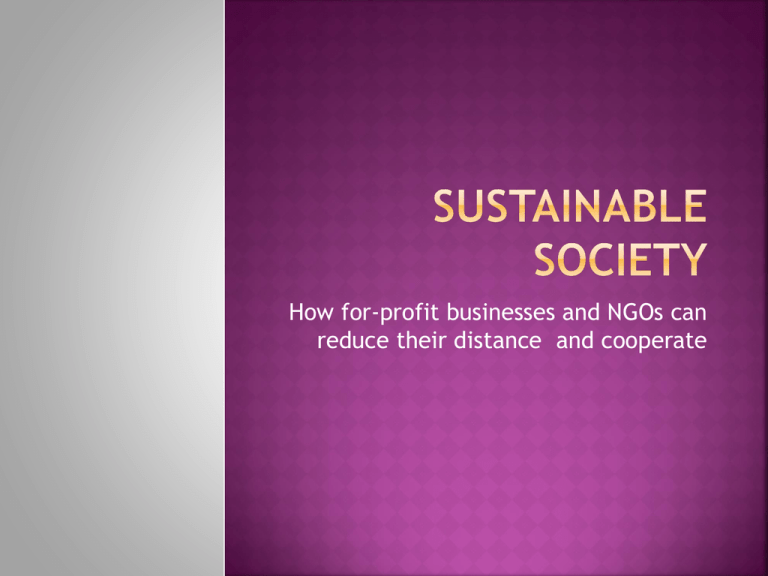
How for-profit businesses and NGOs can reduce their distance and cooperate For-profit businesses and NGOs operate in different sectors with hardly any meeting points CSR? Donations? POWER INEQUALITY Business is business Market rulez NGOs are needy, low-status, charitable organizations with philantropic ambitions Business is evil Market is evil For profits exploit employees/environment Cooperations NGOs based on needs need - Income New connections Acknowledgment /respectable status Sensitive social environment - BUT WHAT MIGHT BUSINESSES NEED? - NEED: A better image Bigger market Affordable services Cost reduction FOR-PROFITS SEEK: Economically sound solutions Socially sound solutions NGOs SEEK: Solutions in line with their mission Marketable and profitable solutions (which enable them to build connections in the entire society thus promoting their aims and causes) Austrian So-Pro initiative (Soziale Produziert) Products produced by social enterprises Production spares resources, as it is produced: Locally By local partnerships By supported employment From waste materials Supporting social enterprises’ appearance in the market Preparing Finding cooperation with for-profit actors common opportunities for cooperation Preparig the international network Preparing a European trademark (high quality, economically and socially sustainable product) Cooperation with Danube Region Strategy Industrial waste of a matress producing company is turned into construction toy cubes by people employed by Caritas Gardening jobs are done by mentally handicapped people at a car dealership Coffeepods from a cafeteria are turned into jewellery by under-educated and drug-addicted young people Bags are produced from waterproof textile banners previously produced and used by an advertising agency BASIC PRINCIPLES: Environmental awareness Social responsibility Economic responsibility (reasonable wages, free from tax evasion and corruption) IT IS NOT: - Donation / Charity / CSR It accepts that market is profit-oriented It accepts the basic principles how the market works It emphasizes responsibility and sustainability: they are a priority for all actors We work as advisors with both parties We build connections We introduce the model We explore opportunities (with state sector actors cooperation is also possible, local authorities, etc) A much more gradual process 1. Fundraising techniques (donations, volunteers, etc) – 1st stage of social enterprises 2. Finding services our products they can supply even if only temporarily or seasonally – handicappes people making Christmas decorations – how and where to sell it – involvement of professionals,eg.a designer – 2nd stage of social enterprises 3. Services or products which are self-sustaining – environmentalist NGO letting accommodation in a house in a forest – thus making it possible for the activists to use it for free – market research, marketing, business plan – all needed. -3rd stage of social enterprises 4. Profitable product or service is developed and launched – a full scale business by the NGO though the profit is used in order to help the beneficiaries, the NGO’s target group – 4th stage of social enterprises
